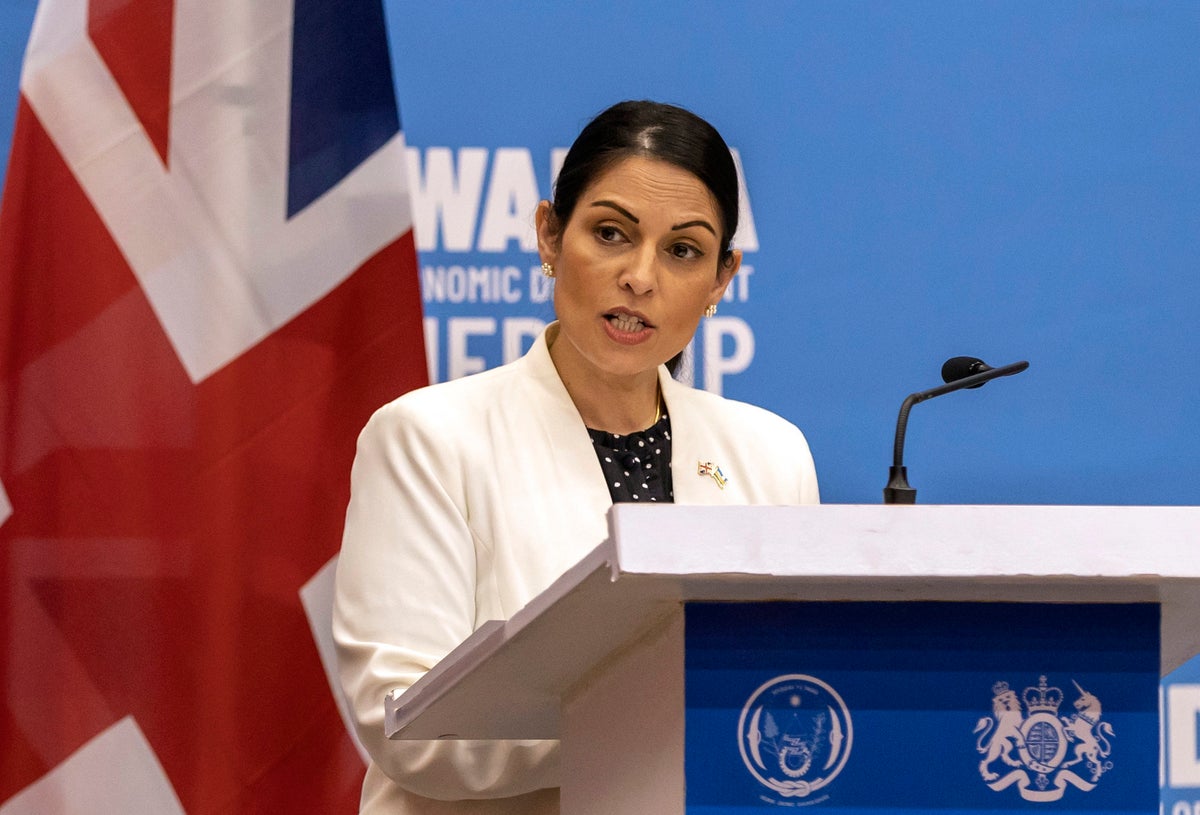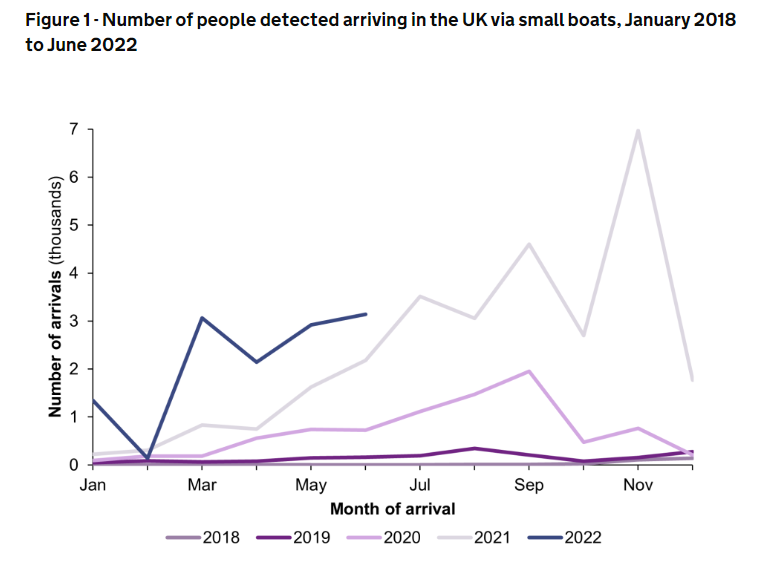
The government has told more asylum seekers they may be sent to Rwanda just weeks before a court challenge over the legality of the policy.
New “notices of intent” have been sent to people from countries including Iraq, Iran and Sudan, who are being accommodated in hotels after crossing the English Channel in small boats.
A document seen by The Independent said British authorities may not consider their asylum claims because they were previously “present in or had a connection to” European countries such as France and Italy.
“If your claim is declared inadmissible, we will not ask you about your reasons for claiming protection or make a decision on the facts of your protection claim,” says the letter, dated 12 August.
“In order to make this decision … we may share your personal data with Rwanda in order to ask Rwanda, another country we consider to be safe, whether it would admit you.”
Priti Patel signed the agreement in April but the first flight intended to take asylum seekers to Kigali was grounded in June, following a wave of legal challenges and injunctions by the European Court of Human Rights.
The first judicial review of the policy, brought by asylum seekers, two charities and a union representing Border Force staff, will begin in September.
No further flights are expected to be scheduled until the High Court decides the outcome of that challenge, and a separate case brought by Asylum Aid, in October.
Care4Calais, one of the charities bringing the first court case, said it was aware of several new “notices of intent” mentioning the Rwanda scheme sent to asylum seekers this month.
Founder Clare Moseley told The Independent: “Last time [the notices were sent], they were taking people into detention – the new ones have been given to people in hotels.
“More than 15,000 people have arrived on small boats since the Home Office started selecting people on 9 May, so they have a big pool of people and there is no way we can get lawyers to all of them.”
Analysis of the first group of more than 100 asylum seekers issued with “notices of intent” saying they could be sent to Rwanda earlier this year suggested that Sudanese people were disproportionately likely to be selected over Syrians, Iranians, Iraqs, Afghans and people of other nationalities who arrived on small boats.
The Home Office declined to provide The Independent with the total number of notices issued so far or any further statistical breakdowns of the people considered for the Rwanda scheme.
Official statistics released on Thursday showed that almost 16,000 “notices of intent” were issued to asylum seekers between 1 January 2021 and the end of June, telling them their “case was being reviewed in order to determine whether removal action on inadmissibility grounds was appropriate and possible”.
But only 83 people were served with final inadmissibility decisions transferring responsibility for asylum claims to a different country, and 21 people were deported on those grounds.

A EU-wide scheme allowing the transfer of asylum seekers to countries they previously stayed in was lost during Brexit and has not been replaced, so the UK has nowhere to transfer refugees it declares “inadmissible” to.
“We have no returns agreements with European countries at the moment, so we can’t return people to European countries,” a Home Office source said on Thursday.
“That’s why we can’t progress with inadmissibility decisions.”
The Rwanda scheme aims to make the country a destination for that cohort of asylum seekers, who would have their claims processed by the Kigali government rather than British authorities.
Official Home Office guidance says an asylum seeker who “spent a couple of weeks in Brussels staying with friends whilst trying to find an agent to bring them illegally to the UK” could be declared inadmissible.
The guidance says that removal to Rwanda should be considered if it “stands a greater chance” than removal to the country they are deemed to have a connection to.
The number of small boat crossings in the English Channel has rocketed to new highs, despite government claims the Rwanda deal would act as a “deterrent”, with about 23,000 migrants arriving by that route so far in 2022.
Official figures have sparked questions about the effectiveness of the government’s plans, with conservative think tank Bright Blue among those saying the statistics suggest the “expensive and controversial policy is not acting as a deterrent”.
Chief executive Ryan Shorthouse said: “The government is right to want to reduce the number of dangerous journeys across the Channel.
“But if the Rwanda policy is failing, it urgently needs to look at alternatives, such as allowing asylum cases to be processed at British embassies and high commissions in a select number of friendly third countries.”

Following a record day of crossings on Monday, authorities in the French region of Hauts-de-France said boats were being launched from multiple points by smugglers sometimes using “flash-mob” tactics in groups up to 200 strong.
“They are betting on a tactic of overwhelming law enforcement, who are fewer in number and only able to deal with one launch at a time,” a spokesperson added.
“We are also seeing an increasing level of violence, with more frequent attacks on officials and soldiers.”
French officials said that although 800 officers were “engaged daily in the fight against clandestine immigration”, they cannot make 160 miles of French coastline “impassable”.
A Home Office spokesperson said: “Our world-leading partnership with Rwanda is a key part of our strategy to overhaul the broken asylum system and break the business model of evil people-smuggling gangs.
''We have always been clear we will continue to progress the partnership to prevent loss of life in the Channel, and we are continuing to inform those who come to the UK through dangerous, illegal and unnecessary routes that they are in scope to be relocated to Rwanda, where they will have the opportunity to claim asylum and be supported to build a new life.”







